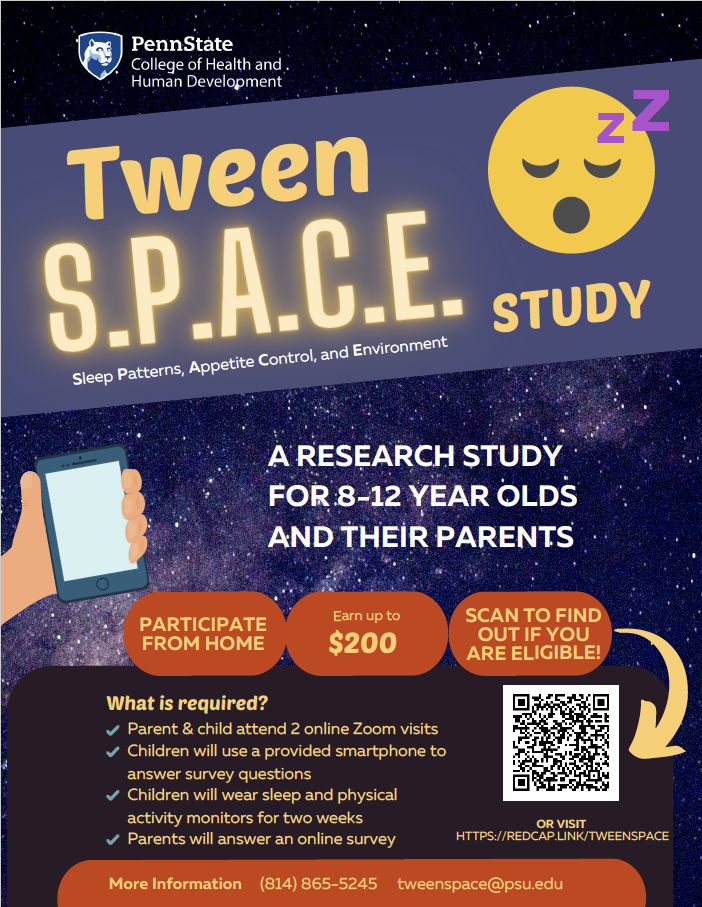TweenSPACE Study
go.ncsu.edu/readext?948870
en Español / em Português
El inglés es el idioma de control de esta página. En la medida en que haya algún conflicto entre la traducción al inglés y la traducción, el inglés prevalece.
Al hacer clic en el enlace de traducción se activa un servicio de traducción gratuito para convertir la página al español. Al igual que con cualquier traducción por Internet, la conversión no es sensible al contexto y puede que no traduzca el texto en su significado original. NC State Extension no garantiza la exactitud del texto traducido. Por favor, tenga en cuenta que algunas aplicaciones y/o servicios pueden no funcionar como se espera cuando se traducen.
Português
Inglês é o idioma de controle desta página. Na medida que haja algum conflito entre o texto original em Inglês e a tradução, o Inglês prevalece.
Ao clicar no link de tradução, um serviço gratuito de tradução será ativado para converter a página para o Português. Como em qualquer tradução pela internet, a conversão não é sensivel ao contexto e pode não ocorrer a tradução para o significado orginal. O serviço de Extensão da Carolina do Norte (NC State Extension) não garante a exatidão do texto traduzido. Por favor, observe que algumas funções ou serviços podem não funcionar como esperado após a tradução.
English
English is the controlling language of this page. To the extent there is any conflict between the English text and the translation, English controls.
Clicking on the translation link activates a free translation service to convert the page to Spanish. As with any Internet translation, the conversion is not context-sensitive and may not translate the text to its original meaning. NC State Extension does not guarantee the accuracy of the translated text. Please note that some applications and/or services may not function as expected when translated.
Collapse ▲About TweenSPACE
The aim of this study is to better understand how children’s eating behaviors are related to their sleep, activity, and environment. This study is being conducted by the Family Health and Eating Lab at Penn State University (Principal Investigator: Dr. Emily Hohman).
What will happen if I participate?
- You and your child will attend a virtual research visit using Zoom. Before the Zoom visit, we will mail you a package containing everything you need to complete the study. During the Zoom visit, a research assistant will help you measure your child’s height and weight to confirm their eligibility. If your child is eligible to continue with the study, the research assistant will then go over how to complete the two week at-home data collection protocol.
- Your child will wear two activity monitors (similar to a Fitbit) on their wrist and hip, and answer surveys on a smartphone several times a day for two weeks. We will not ask your child to complete surveys during school hours.
- Your child will attend a second Zoom visit with a researcher to answer questionnaires about their sleep, eating, feelings, and health.
- You will complete an online survey about your child’s behaviors and your home and family environment.
- You will mail the study supplies back to the research team using prepaid shipping supplies that we will provide.
- You and your child will receive up to $200 in gift cards for participating in the study.
If you are interested in seeing if you qualify to participate, please visit Penn State’s Tween SPACE Study site and complete the eligibility survey, or call the Penn State College of Health and Human Development at (814) 865-5245 to complete the survey over the phone.





